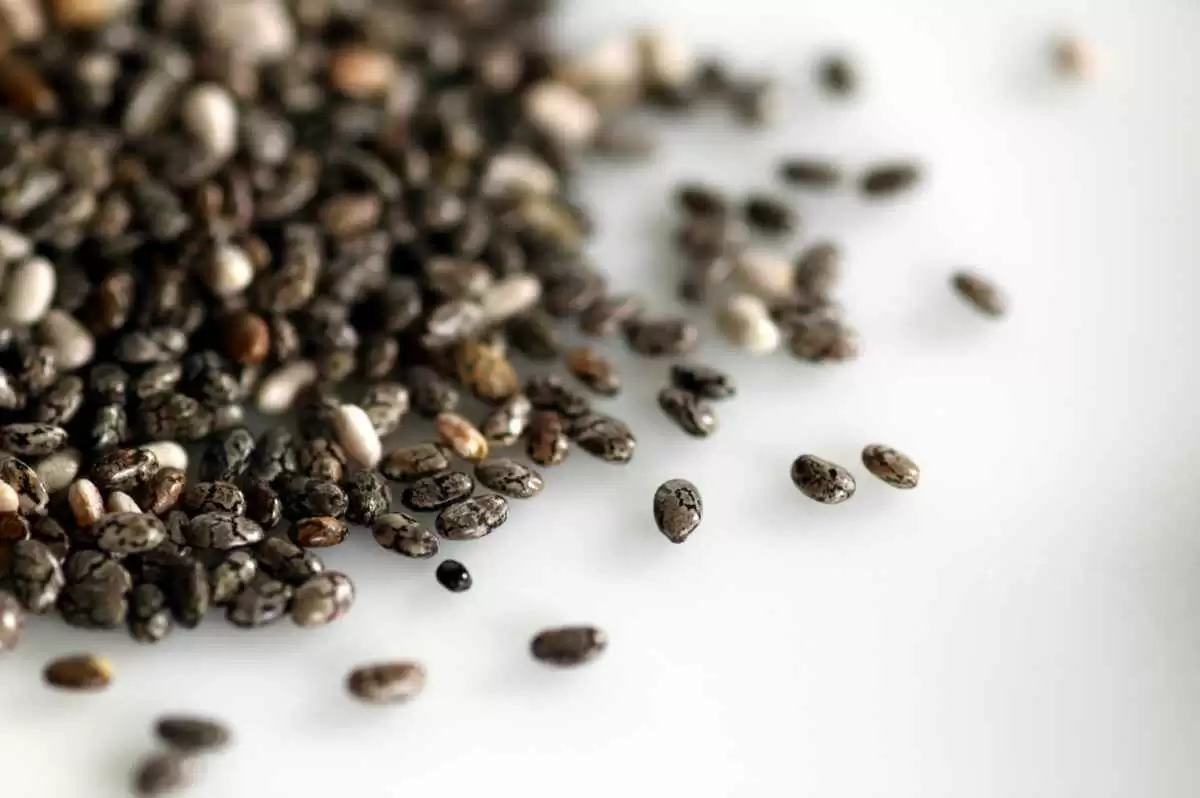Celiac.com 09/04/2023 - Celiac disease, a complex autoimmune disorder triggered by the consumption of gluten, is renowned for its impact on the gastrointestinal system. But the ramifications of this condition extend beyond the gut, touching various facets of health—particularly bone health. As we delve into the intricate relationship between celiac disease and bone health, we uncover insights that illuminate the critical importance of maintaining strong bones through targeted strategies and a conscientious approach to nutrition and lifestyle.
In this comprehensive exploration, we navigate the terrain of celiac disease's impact on bone health, understanding how nutrient malabsorption can lead to a higher risk of conditions such as osteoporosis. We delve into the role of key nutrients in supporting bone density, and we offer practical guidance on maintaining bone health within the context of a gluten-free lifestyle. Through a blend of nutritional insights and lifestyle recommendations, we aim to empower individuals with celiac disease to take charge of their bone health journey.
Celiac Disease and Bone Health: Understanding the Link
Celiac.com Sponsor (A12):
The intricate relationship between celiac disease and bone health emerges from the complex interplay between the body's immune response, nutrient absorption, and bone density. Celiac disease is characterized by an autoimmune reaction to gluten, a protein found in wheat, barley, and rye. This immune response primarily targets the lining of the small intestine, leading to inflammation and damage. As a consequence, the intestine's ability to absorb nutrients—crucial for overall health—is compromised, with potential repercussions for bone health.
The connection between celiac disease and bone health revolves around the impaired absorption of key nutrients that are integral to bone formation and maintenance. Notably, celiac disease often results in reduced absorption of calcium, vitamin D, magnesium, and other micronutrients essential for bone health. These nutrients play pivotal roles in supporting bone density, promoting proper mineralization, and preventing conditions such as osteoporosis.
When the body lacks sufficient calcium, it draws from the existing calcium stored in bones to maintain vital functions. Over time, this can lead to a decline in bone density, making bones more susceptible to fractures. Similarly, vitamin D deficiency can hinder the body's ability to absorb calcium efficiently, further impacting bone health. Magnesium, another essential nutrient, contributes to bone strength by aiding in the conversion of vitamin D into its active form—a process vital for calcium absorption.
Individuals with untreated or undiagnosed celiac disease are at a heightened risk of developing osteoporosis, a condition characterized by weak and brittle bones. Studies have demonstrated that bone mineral density is often lower in individuals with celiac disease compared to the general population. Moreover, the risk of fractures—especially hip fractures—is notably elevated in those with celiac disease, underscoring the importance of addressing bone health in the context of this condition.
The relationship between celiac disease and bone health serves as a stark reminder of the interconnected nature of bodily systems. While celiac disease may manifest primarily as a gastrointestinal concern, its implications ripple through the body, affecting diverse aspects of health—including the strength and integrity of our bones. As we venture further into this exploration, we uncover strategies to counteract the impact of celiac disease on bone health, empowering individuals to fortify their bones through informed choices and proactive measures.
Nutritional Deficiencies and Bone Health
The delicate equilibrium of bone health hinges on a symphony of nutrients that work in harmony to build and maintain strong bones. In the context of celiac disease, where nutrient absorption is compromised, this symphony can be disrupted, potentially leading to a cacophony of challenges for bone density and overall skeletal integrity.
Calcium: The Backbone of Bone Health
Calcium, often referred to as the building block of bones, is essential for maintaining bone density and strength. In the presence of celiac disease, the damaged small intestine struggles to absorb calcium efficiently, creating a deficit that can undermine bone health. Prolonged calcium deficiency can result in weakened bones prone to fractures, a scenario particularly concerning for those with celiac disease.
Vitamin D - The Sunshine Vitamin for Bones
Vitamin D, often dubbed the sunshine vitamin, plays a critical role in the absorption of calcium and the regulation of bone mineralization. The gut's compromised ability to absorb nutrients in celiac disease can lead to inadequate absorption of vitamin D, which in turn impairs calcium absorption. This intricate dance between vitamin D and calcium underscores the interconnectedness of nutrient functions in maintaining bone health.
Magnesium: A Supporting Player in Bone Health
Magnesium, though often overshadowed by calcium, is equally vital for bone health. This mineral facilitates the conversion of vitamin D into its active form, amplifying the body's ability to absorb calcium. The malabsorption challenges posed by celiac disease can compromise magnesium absorption, potentially disrupting this integral process and compromising bone density.
Zinc, Copper, and Bone Health
Beyond the spotlight of calcium, vitamin D, and magnesium, other micronutrients also contribute to bone health. Zinc and copper, for instance, play roles in bone formation and remodeling. Malabsorption associated with celiac disease can hinder the absorption of these minerals, potentially impacting bone maintenance and contributing to bone fragility.
Addressing Nutritional Deficiencies
The critical role of these nutrients in bone health underscores the importance of addressing nutritional deficiencies in individuals with celiac disease. Supplementation might be recommended under the guidance of healthcare professionals to restore optimal levels of essential nutrients. However, it's important to note that supplementation should be personalized and monitored, as excessive doses can lead to imbalances and unintended consequences.
In the journey to maintain strong bones amidst the challenges of celiac disease, a multidimensional approach is essential. Crafting a diet rich in bone-supporting nutrients and working closely with healthcare providers can help mitigate the impact of malabsorption and foster bone health. In the subsequent sections, we delve into strategies for optimizing bone density through proper nutrition and lifestyle choices, ensuring that the symphony of nutrients continues to harmonize for the well-being of your bones.
Strategies for Maintaining Bone Density
As we navigate the nuanced landscape of celiac disease's impact on bone health, it becomes evident that proactive measures are essential to preserve bone density and reduce the risk of osteoporosis. While celiac disease may present challenges, a strategic approach to nutrition and lifestyle can empower individuals to fortify their bones and mitigate the consequences of impaired nutrient absorption.
-
Balanced Nutrition for Bone Support
Crafting a diet that prioritizes bone health involves a deliberate selection of nutrient-rich foods. Incorporate an array of calcium sources, including dairy (if tolerated) or fortified plant-based alternatives. Leafy greens, almonds, and sardines are also excellent sources of calcium. Fortified foods, such as cereals and plant-based milk, can offer an additional boost of bone-supporting nutrients, including vitamin D. -
Magnesium-Rich Choices
Magnesium, an often overlooked mineral, is a cornerstone of bone health. Incorporate magnesium-rich foods such as nuts, seeds, whole grains, legumes, and leafy greens into your diet. These choices not only support bone density but also contribute to overall well-being. -
Vitamin D - Embrace the Sun and Supplements
Sunlight is a natural source of vitamin D, but individuals with celiac disease may struggle with absorption. Spend time outdoors to benefit from sunlight, and consider vitamin D supplements under healthcare supervision to ensure adequate levels for optimal bone health. -
Weight-Bearing Exercises
Engaging in weight-bearing exercises—activities that involve supporting your body weight—can help stimulate bone growth and prevent bone loss. Activities like walking, jogging, dancing, and resistance training encourage bone remodeling and strengthen bones over time. -
Mindful Weight Management
Maintaining a healthy weight is crucial for bone health. Extreme weight loss, especially through crash diets, can impact bone density. A balanced approach to weight management ensures that bones receive the support they need to remain strong. -
Limit Alcohol and Avoid Smoking
Excessive alcohol consumption and smoking have detrimental effects on bone health. These habits can hinder the body's ability to absorb and utilize essential nutrients, ultimately compromising bone density. Minimizing alcohol intake and avoiding smoking contribute to overall well-being, including bone health. -
Regular Bone Density Screenings
Regular bone density screenings, especially for those with celiac disease, provide valuable insights into bone health and potential vulnerabilities. Healthcare professionals can monitor your bone density and offer guidance on necessary interventions. -
Collaborate with Healthcare Professionals
Navigating the complexities of celiac disease and bone health necessitates collaboration with healthcare professionals. Registered dietitians, endocrinologists, and other specialists can provide personalized guidance to optimize bone health within the context of celiac disease.
By proactively integrating these strategies into your lifestyle, you can take control of your bone health journey. While celiac disease may introduce challenges, the power to mitigate its impact on bone density lies within your grasp. Through mindful choices and a commitment to holistic well-being, you can forge a path toward maintaining strong, resilient bones that support your overall health and vitality.
Gluten-Free Diet and Bone Health
For individuals with celiac disease, a gluten-free diet isn't just a dietary choice—it's a necessity for managing their health. While the primary focus of a gluten-free diet is to alleviate gastrointestinal symptoms and prevent damage to the small intestine, its implications extend to various aspects of well-being, including bone health. Navigating the intricacies of a gluten-free lifestyle while prioritizing bone density requires a thoughtful approach that integrates nutritional wisdom and practical strategies.
-
Sourcing Nutrient-Rich Gluten-Free Foods
Transitioning to a gluten-free diet requires careful consideration of nutrient intake, especially since many traditional gluten-containing sources of nutrients are eliminated. Opt for whole and minimally processed gluten-free foods that are naturally rich in nutrients. Whole grains like quinoa, brown rice, and gluten-free oats offer valuable nutrients that contribute to bone health. -
Seek Out Fortified Foods
Fortified foods are a valuable ally for individuals with celiac disease, as they provide an extra dose of bone-supporting nutrients. Look for gluten-free products fortified with calcium, vitamin D, and other essential vitamins and minerals. These fortified options can bridge nutritional gaps and contribute to bone density. -
Embrace Dairy Alternatives
For individuals who are lactose intolerant or prefer dairy alternatives, a variety of plant-based milk alternatives are available. Opt for calcium-fortified versions to ensure you're obtaining the bone-supporting benefits of calcium while adhering to a gluten-free lifestyle. -
Prioritize Bone-Supporting Nutrients
Ensure that your gluten-free diet is rich in the nutrients crucial for bone health. Incorporate sources of calcium, vitamin D, magnesium, and other essential vitamins and minerals into your meals. By maintaining a diverse and well-balanced diet, you can provide your bones with the support they need. -
Read Labels Diligently
Gluten can hide in unexpected places, even in processed foods. Read labels meticulously to identify gluten-containing ingredients and opt for certified gluten-free products whenever possible. This practice not only supports your gluten-free journey but also helps you maintain a diet that promotes bone health. -
Consult with a Registered Dietitian
Collaborating with a registered dietitian who specializes in celiac disease and nutrition can offer invaluable insights. A dietitian can help you craft a gluten-free meal plan that addresses nutritional gaps, promotes bone health, and aligns with your dietary preferences and restrictions. -
Address Cross-Contamination
Preventing cross-contamination is crucial for individuals with celiac disease. Dedicated kitchen equipment, utensils, and food storage can help safeguard against unintentional gluten exposure. This diligence ensures that your gluten-free diet not only supports gut health but also contributes to overall well-being, including bone density. -
Monitor Nutritional Status
Regularly monitoring your nutritional status, including levels of calcium, vitamin D, and other bone-supporting nutrients, is essential. Healthcare professionals can conduct tests to identify deficiencies and recommend necessary interventions.
In navigating the intersection of a gluten-free diet and bone health, mindfulness and knowledge serve as your guiding lights. By making informed dietary choices, embracing nutrient-rich alternatives, and seeking guidance from healthcare professionals, you can seamlessly integrate a gluten-free lifestyle into your bone health journey. As you continue to prioritize both your gastrointestinal and skeletal health, you pave the way for a vibrant, thriving life.
Importance of Regular Screening
In the realm of bone health, knowledge truly is power. Regular screenings play a pivotal role in assessing bone density, identifying vulnerabilities, and enabling timely interventions. For individuals with celiac disease, who face an increased risk of bone-related complications, the significance of regular bone density screenings cannot be overstated. These screenings offer insights that empower proactive measures to preserve bone density and prevent fractures.
-
Understanding Bone Density Screenings
Bone density screenings, often conducted using dual-energy X-ray absorptiometry (DXA) scans, provide a snapshot of your bone health. The results offer a measurement of bone mineral density (BMD), which indicates the strength and density of your bones. This measurement helps healthcare professionals assess your risk of osteoporosis and fractures. -
Monitoring Changes Over Time
Regular bone density screenings create a longitudinal perspective on your bone health. By comparing measurements from different time points, healthcare providers can track changes in bone density and identify trends. This insight guides decisions about interventions, adjustments to treatment plans, and lifestyle modifications. -
Early Detection of Osteoporosis Risk
Bone density screenings play a crucial role in the early detection of osteoporosis risk. Detecting reduced bone density early allows for timely interventions to slow bone loss, prevent fractures, and improve overall bone health. Individuals with celiac disease, given their susceptibility to bone-related complications, benefit immensely from such proactive measures. -
Tailored Interventions
The data from bone density screenings enable healthcare professionals to tailor interventions to your specific needs. Depending on your bone health status, your healthcare team can recommend targeted dietary adjustments, supplementation strategies, exercise regimens, and potentially medication to support your bones and mitigate the impact of celiac disease. -
Informed Decision-Making
Bone density screenings empower you to make informed decisions about your bone health journey. Armed with knowledge about your bone density, you can actively collaborate with healthcare providers to choose the most suitable interventions and make lifestyle modifications that contribute to strong and resilient bones. -
Frequency of Screenings
The recommended frequency of bone density screenings can vary based on factors such as age, risk factors, and individual health history. Generally, postmenopausal women and men aged 50 and older are advised to undergo screenings, but individualized recommendations are key. Discuss with your healthcare provider to determine the optimal screening schedule for your unique circumstances.
Regular bone density screenings serve as a proactive stance against the potential repercussions of celiac disease on bone health. Through these screenings, you gain insights that fuel informed decisions and empower you to take charge of your well-being. By embracing the opportunities offered by bone density screenings, you set a course toward preserving bone density, reducing fractures, and fostering a life of strength and vitality.
Lifestyle Factors and Bone Health
While celiac disease introduces unique challenges to bone health, lifestyle factors further shape the trajectory of bone density and overall skeletal well-being. Lifestyle choices, such as dietary habits, exercise routines, and habits like smoking and alcohol consumption, can either bolster bone health or undermine its integrity. Understanding the intricate interplay between lifestyle and bone health empowers individuals with celiac disease to make conscious choices that fortify their bones.
-
The Impact of Smoking
Smoking, known for its adverse effects on various aspects of health, extends its reach to bone health as well. Smoking interferes with the body's ability to absorb calcium and produces harmful compounds that contribute to bone loss. Individuals with celiac disease who smoke face heightened risks of bone fragility and should consider cessation strategies to safeguard their bone density. -
Alcohol Consumption and Bone Health
Excessive alcohol consumption can be detrimental to bone health. Alcohol interferes with the body's ability to absorb nutrients essential for bone density, such as calcium and vitamin D. Individuals with celiac disease are already navigating nutritional challenges; therefore, minimizing alcohol intake supports both overall health and bone well-being. -
The Role of Weight Management
Maintaining a healthy weight is integral to bone health. Rapid weight loss, often achieved through crash diets, can lead to bone loss and compromise bone density. Prioritizing gradual, sustainable weight management not only supports bone health but also contributes to overall well-being. -
Engaging in Weight-Bearing Exercise
Physical activity plays a pivotal role in preserving bone density. Weight-bearing exercises, which involve supporting your body weight, stimulate bone growth and remodeling. Activities like walking, jogging, dancing, and resistance training contribute to the strengthening of bones, reducing the risk of fractures. -
Importance of Balanced Nutrition
A balanced diet rich in bone-supporting nutrients is paramount. Incorporate calcium-rich foods, vitamin D sources, magnesium-rich options, and other essential nutrients into your meals. Opt for a diverse array of whole foods to provide your bones with the building blocks they need to thrive. -
Mindful Weight Management
Extreme fluctuations in weight can impact bone density. Crash diets or rapid weight loss can lead to bone loss, affecting the structural integrity of bones. Embrace a balanced approach to weight management that prioritizes gradual and sustainable changes. -
Hydration and Bone Health
Proper hydration is often overlooked in discussions about bone health. Staying hydrated supports various bodily functions, including the transport of nutrients crucial for bone density. Adequate water intake contributes to overall well-being, which in turn positively influences bone health.
By making conscious choices aligned with these lifestyle factors, individuals with celiac disease can nurture their bone health and reduce the risk of complications. Each decision—whether to engage in weight-bearing exercises, refrain from smoking, or prioritize balanced nutrition—shapes the story of bone health. Through these choices, you become an active participant in your skeletal well-being journey, crafting a narrative of strength, resilience, and longevity.
Incorporating Bone-Supporting Foods
Nourishing your bones goes beyond mere sustenance; it's a deliberate act of care that paves the way for strength and resilience. When you have celiac disease, this act of nourishment takes on added significance as you navigate dietary restrictions and nutritional considerations. By embracing a variety of bone-supporting foods, you empower your bones to weather the challenges posed by celiac disease and emerge fortified.
-
Leafy Greens: A Verdant Source of Nutrients
Leafy greens, such as kale, collard greens, and spinach, are nutritional powerhouses that offer an array of bone-supporting nutrients. Packed with calcium, magnesium, and vitamin K, these greens contribute to bone density and health. Incorporate them into salads, smoothies, and cooked dishes to infuse your meals with bone-nurturing benefits. -
Dairy and Dairy Alternatives
Dairy products are renowned for their calcium content, but individuals with celiac disease may need to explore dairy alternatives. Fortified plant-based milks, like almond, soy, and oat milk, provide calcium and vitamin D, making them valuable allies for bone health. Whether you opt for traditional dairy or dairy alternatives, be sure to choose options that align with your dietary preferences and restrictions. -
Sardines: A Tiny Nutritional Powerhouse
Sardines, often overlooked in favor of larger fish, are a potent source of nutrients that bolster bone health. Rich in calcium, vitamin D, and omega-3 fatty acids, sardines contribute to bone density and provide anti-inflammatory benefits. Incorporate them into salads, spreads, or simply enjoy them as a snack to tap into their nutritional potency. -
Nuts and Seeds: A Crunchy Boost for Bones
Nuts and seeds offer a satisfying crunch while delivering essential nutrients for bone health. Almonds, chia seeds, flaxseeds, and sesame seeds are rich sources of calcium, magnesium, and healthy fats. Sprinkle them on salads, add them to yogurt, or enjoy them as a standalone snack to enhance your bone-supporting nutrient intake. -
Fortified Foods: A Convenient Solution
In the realm of bone health, fortified foods serve as convenient solutions to address nutritional gaps. Look for gluten-free products fortified with calcium, vitamin D, and other bone-supporting nutrients. These fortified options, ranging from cereals to plant-based milk, can seamlessly integrate into your diet to support your bone density goals. -
Broccoli and Cruciferous Vegetables
Broccoli and other cruciferous vegetables offer an array of nutrients that contribute to bone health. Beyond calcium, they contain vitamin K, which plays a role in bone mineralization. Steam, roast, or incorporate them into stir-fries to enjoy their benefits and enhance your bone-supporting nutrient intake. -
Eggs: A Nutrient-Rich Addition
Eggs, a versatile staple, are rich in multiple nutrients that support bone health. They provide a dose of protein, vitamin D, and vitamin K, all of which contribute to bone density. Incorporate eggs into your meals, whether in omelets, frittatas, or as part of a balanced breakfast.
By incorporating these bone-supporting foods into your diet, you lay the foundation for strong and resilient bones. Each meal becomes an opportunity to infuse your body with the nutrients it craves, transcending the challenges of celiac disease. Whether you're savoring a leafy green salad or relishing a serving of sardines, remember that every bite is a gesture of empowerment—an act that nurtures your bones and fosters a life of vitality.
Supplementation and Bone Health
For individuals with celiac disease, the journey to bone health often involves a multifaceted approach that extends beyond dietary choices. While a well-balanced diet is a cornerstone, nutritional gaps may persist due to the challenges posed by malabsorption. In such cases, supplementation emerges as a strategic tool to bridge these gaps, ensuring that essential nutrients crucial for bone density are readily available.
-
The Role of Supplements
Supplements play a vital role in addressing nutritional deficiencies that may arise from celiac disease. When the damaged small intestine hinders nutrient absorption, supplements offer a targeted approach to replenish specific nutrients required for bone health, such as calcium, vitamin D, and magnesium. -
Calcium Supplements
Calcium supplements provide a direct means of meeting the body's calcium needs, particularly when dietary sources fall short. Look for calcium citrate or calcium carbonate supplements, and consult with a healthcare professional to determine the appropriate dosage and frequency based on your individual requirements. -
Vitamin D Supplementation
Vitamin D, pivotal for calcium absorption and bone health, may warrant supplementation for individuals with celiac disease. However, the optimal dosage varies based on factors like age, sun exposure, and existing vitamin D levels. Collaborate with a healthcare provider to determine a personalized supplementation plan. -
Magnesium and Other Nutrients
Magnesium, zinc, copper, and other micronutrients contribute to bone health and may require supplementation in the context of celiac disease. Healthcare professionals can conduct tests to assess deficiencies and recommend supplementation strategies tailored to your unique needs. -
Consulting Healthcare Professionals
The decision to incorporate supplements should always be made in consultation with healthcare professionals. Registered dietitians, endocrinologists, and other specialists can guide you through the process, conducting tests to identify deficiencies and ensuring that supplementation aligns with your overall health goals. -
Monitoring Progress
Supplementation isn't a one-size-fits-all solution; it requires ongoing assessment and adjustment. Regular monitoring of nutrient levels through blood tests ensures that supplementation remains effective and that dosages are tailored to your evolving needs. -
Interaction with Medications
It's crucial to consider potential interactions between supplements and medications you may be taking. Some supplements can affect the absorption or efficacy of certain medications, underscoring the importance of healthcare provider oversight.
Supplementation serves as a strategic tool to bridge the nutritional gaps that celiac disease can create. While a well-considered gluten-free diet forms the foundation, supplements offer targeted support, ensuring that bone-supporting nutrients are delivered where they are needed most. Through collaborative efforts with healthcare professionals, you can navigate the nuanced landscape of supplementation, optimizing bone health and well-being.
Conclusion
The journey of bone health for individuals with celiac disease is a testament to the intricate connections between diet, digestion, and well-being. As we've navigated the depths of this exploration, we've uncovered the profound impact of celiac disease on bone density and learned how a gluten-free lifestyle can be both a necessity and an opportunity for nurturing skeletal well-being.
The emerging research on the relationship between celiac disease and bone health underscores the importance of vigilance and proactive measures. From understanding the connection between nutrient absorption and bone density to embracing a diet rich in bone-supporting foods, individuals with celiac disease possess the tools to foster strength and resilience in their bones.
By recognizing the significance of regular bone density screenings, addressing nutritional deficiencies, and making mindful lifestyle choices, you transcend the challenges that celiac disease presents. Your commitment to informed decision-making, guided by the wisdom of healthcare professionals, lays the foundation for a life characterized by vibrant bones and unwavering well-being.
As you continue on this path, remember that bone health is a journey of empowerment—a journey where each choice you make is an investment in your skeletal strength. By weaving together the threads of knowledge, nutrition, lifestyle, and healthcare collaboration, you craft a narrative of resilience—one where your bones flourish in the face of adversity, embodying the essence of vitality.












Recommended Comments
Create an account or sign in to comment
You need to be a member in order to leave a comment
Create an account
Sign up for a new account in our community. It's easy!
Register a new accountSign in
Already have an account? Sign in here.
Sign In Now